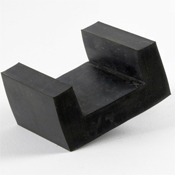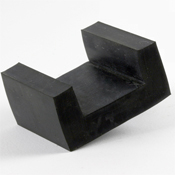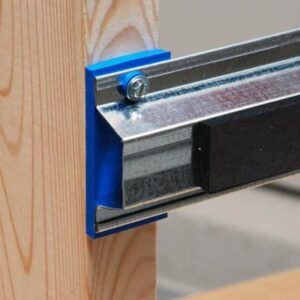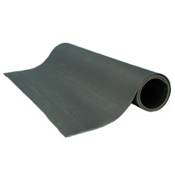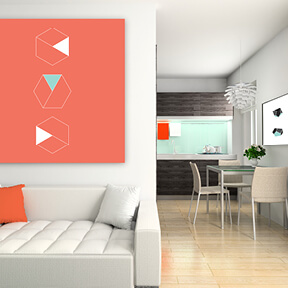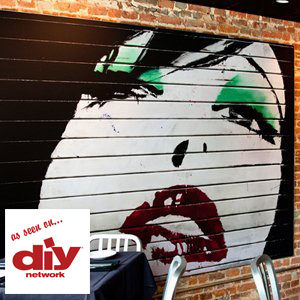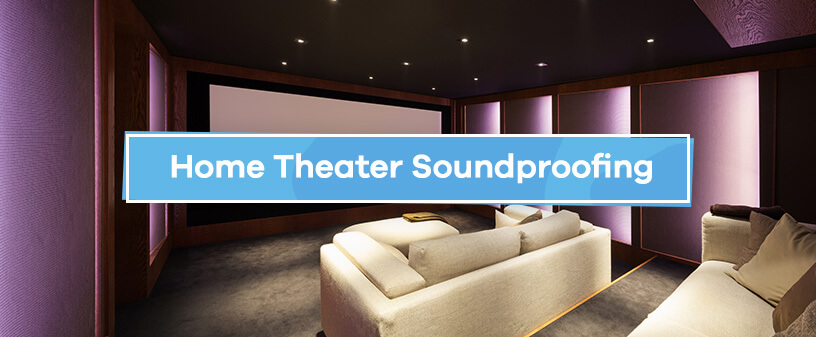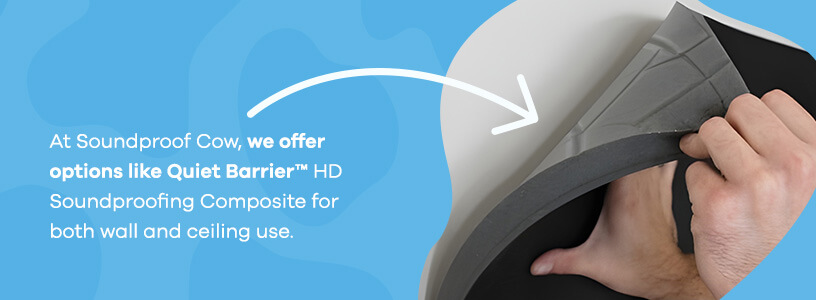-
What Are You Missing by Not Having Home Theater Soundproofing?
- In recent years, home theater systems and big-screen HDTV’s have exploded in popularity. Like any true entertainment guru knows, the ultimate entertainment experience is a home theater. It’s your own private area for you to enjoy your favorite TV show. It’s where you gather the family for movie night. But it’s also the reason others are complaining about the ear-splitting noise of special effects, heard all throughout the house. And while the picture may be crystal clear, the sound isn’t. After you’ve invested in the space, you don’t want to lose your joy because you notice it doesn’t sound as good as it looks.
-
What Can Home Theater Soundproofing Do for You?
- • Keep loud sounds inside the room, so you don’t bother other family members in the house • Prevent outside noise from coming in, keeping you where you should be: in the movie • Improve sound quality within the home theater itself, so the sound quality matches the picture quality Unfortunately, 99% of home theater buyers don’t think about acoustics until they actually sit down to watch their first movie or game. Each home theater configuration has its own acoustical challenges. But most can be met with one of two types of products: Home theater soundproofing or sound absorption materials.
-
How Do You Know Which Type of Home Theater Soundproofing
- Here’s an easy 2-step process to determine which you need: Step 1: Identify WHAT the problem is. Is your wife constantly asking you to turn down the volume so she can sleep? Is the movie sound muffled and not clear? Do you hear outside traffic noise while trying to watch your favorite flick? Step 2: Identify WHERE the sound is coming from that you want to fix. Do you want to fix the sound of the theater? Or do you want to fix the sound outside the theater? Sound absorption products help control the noise that’s in the same space as you and increase the sound quality of that space. Home soundproofing products stop sound from entering or exiting your space.

Home Theater Soundproofing Products
Home Theater Sound Absorption Products
Do you dream of the day you can enjoy a theater experience at home? With the right soundproofing materials and a little planning, you can enjoy films without leaving the comfort of your home.
Most homes are not built with soundproofing adequate for a home theater space. To successfully soundproof a home theater, you will need to insulate the walls, ceilings, doors, and floors. Home theater soundproofing can be accomplished by installing materials such as acoustic panels, soundproof insulation and sound isolation systems.
We did the work gathering everything you need to enjoy MOOvies at home — in your very own soundproof theater!
Benefits of Soundproofing a Home Theater
When you invest in soundproofing for your home theater, you are expanding your options. Enjoy a fully immersive theater experience without disturbing the rest of the house.
Soundproofing keeps the rest of your home quiet and happy, and it reduces the likelihood that your home theater disturbs your neighbors. Quality insulation is a benefit to every room in your house, and it especially makes a difference in a home theater.
How to Soundproof Home Theater Walls
To soundproof a room, you need layers of material that will absorb sound waves. It’s also very helpful to seal cracks and gaps so air and sound can not freely pass between spaces. You can achieve maximum soundproofing by pairing thick insulation with a floating wall system like Soundproof Cow’s isoTRAX® Soundproofing System.
Floating wall systems separate drywall from the studs that form the structure of your home. This strategy prevents sound waves from passing through one material and then vibrating through the next. When there’s space between the drywall and studs in a wall, sound tends to move inside a room rather than through the walls and into another space.
Creating separation in your walls is especially helpful for deep and low-pitched sounds — such as bass or the sound of a truck on the street. These noises have slower, longer sound waves that are more difficult to stop and redirect than high-pitched sounds.
The isoTRAX® Soundproofing System keeps both high- and low-pitched sounds from leaving a space. This system includes dampening pads that allow minimal transfer of vibrations from your drywall to the studs and rooms beyond the space you’re soundproofing.
Another option for soundproofing walls includes hanging acoustic art panels. They will improve the acoustics in your space. Acoustic panels are a great option if you don’t want to remove your drywall and they are a great addition to any room.
How to Soundproof Home Theater Ceilings
Ceilings can be treated very similarly to walls in your home theater. Using the isoTRAX® Soundproofing System, you can separate the drywall in your ceiling from the studs underneath. This will significantly reduce the amount of soundwaves traveling into or out of your home theater through the ceiling.
In addition to using a floating wall system on your ceiling, you can install high-quality soundproofing composite. At Soundproof Cow, we offer options like Quiet Barrier® HD Soundproofing Composite for both wall and ceiling use.
Quiet Barrier® blocks sound from leaving a room and instead redirects the sound waves back into the original space. For best results in a home theater, this product should be used with a floating wall system. Quiet Barrier® comes in a variety of sizes, so you can request the option that’s best for your project.
If you are unable or unwilling to remove the drywall in your ceiling, consider mounting fabric-wrapped acoustic panels on the ceiling in your home theater instead. These panels can help dampen some of the sound in the space without the renovation commitment of a floating ceiling system. At Soundproof Cow, we supply a wide variety of fabric options to best match your space. Our fabrics also have a high flammability rating, which offers a great peace of mind.
How to Soundproof Home Theater Doors
Doors present a unique challenge because they create breaks in a wall. When there’s no barrier, sound waves can easily travel through the air into other parts of your home. Both low and high frequencies can escape through the gaps around your door, reducing the overall level of soundproofing for your home theater.
To keep sound from escaping around a door, you can install door sweeps and seals. These tools will seal off any cracks around the door, ensuring your soundproof theater does not affect the rest of the house.
Door sweeps work by blocking the space underneath your door so that noise can not escape underneath. They’re made of rubber, which means they can flex slightly when the door moves and then seal the space once it’s closed. Rubber is an incredible soundproofing material because of its mass and flexibility.
Another option for soundproofing doors is adding rubber seals along the side. These fit inside your door frame and block any cracks along the sides or top of your door. When your door is shut, the noise will be effectively blocked from leaving or entering the room.
If you are concerned about sound moving through the actual door itself, there are a few options to improve the door’s soundproofing qualities. You can mount art or fabric-wrapped acoustic panels onto the inside of the door. You can also add a layer of soundproofing foam to cover the entire door inside your space.
To help you achieve the best results, Soundproof Cow offers several soundproofing door kits that come with multiple materials to help you dampen sound around and through your door.
How to Soundproof Home Theater Floors
Like walls and ceilings, your floor transmits less sound once it’s separated from your home’s frame. At Soundproof Cow, we offer floor joist isolators to do just that. These pieces of equipment are especially effective for low-frequency sounds.
Joist isolators are U-shaped pieces of thermoplastic that fit directly underneath floor joists. They stop vibrations from traveling down through your floor or up from the room underneath. Installing joint isolators is the most effective way to improve sound deadening for your home theater floor.
If your floors are already finished and you do not want to deal with any construction, a thick rug can also make a difference in soundproofing. Some materials are better than others for home theater sound dampening — for example, wool is an excellent soundproofing fiber. You can also use flooring underlayment under your carpet, tile, laminate, stone, or hardwood floor for increased sound insulation.
Best Insulation for Soundproofing Home Theaters
When you’re shopping around for insulation, there are a few factors that determine the best option for you:
- An option with great ratings
- An option that’s in your price range
- An option that fits your space
At Soundproof Cow, we work with you to find the best products for your needs and budget. Every room is different, and sometimes, small changes can make big differences in solving your soundproofing problem.
One of the most effective solutions we offer at Soundproof Cow is Quiet Batt® Soundproofing Insulation. This soundproofing solution traps sound and thermally insulates your space, giving you two home improvements for one product.
Request a Free Acoustic Analysis From Soundproof Cow
Use these tips to create your oasis. You will be able to enjoy your home theater without worrying about any sound transfer. Other people in your home, and surrounding noises won’t be disturbed — you will be able to enjoy your new space to the fullest.
For help creating a professionally soundproof space, contact Soundproof Cow for a free acoustic analysis. We love helping customers solve unique challenges, and our goal is to make soundproofing as uncomplicated as possible. When you work with us, you will have peace of mind — as well as peace and quiet.
Soundproof Other Spaces

I just wanted to send a quick thank you for your rapid response and helpfulness. I very much appreciated it. You have been responsive in every way all through the process. It has been a pleasure doing business with you and your company.
- T. Alexander


